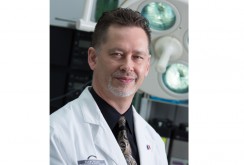
There is a wide range of skin care products available on the market. The competition is fierce and each brand must find a way to differentiate itself from the others. Many of these skin care lines will promote ingredients that have no clinical support and unknown percentages. As a consumer, this can be very confusing and it is often difficult to evaluate products to find the right one and determine whether their “promised results” are true.
Medical-grade products
Medical-grade skin care products are composed of ingredients that have been medically proven and are only available through a doctor. Many of these skin care products have been released to the market only after years of clinical research and their benefit has been proven such as IS Clinical and Alyria Skin Optimizing System. Some medical-grade products may appear to be similar to those available in department stores, but their ingredients are at a much greater strength than the U.S. Food and Drug Administration allows in those skin care products that are sold over the counter. Here are some common features of medical-grade products.
Medical-grade products:
- Are available through a doctor
- Have been designed for deep penetration.
- Work at the dermis or middle layer of the skin, where collagen and elastin are contained.
- Work at the basal, or bottom layer of the skin, where new skin cells are produced.
- Are designed to correct or heal a problem.
- Should be applied, prescribed or recommended only by a physician or a certified medical clinician.
As we grow older we need help with building and stimulating collagen and elastin to give our skin a healthier appearance. While exfoliating the epidermis (removing dead skin from the outer layer) should always be part of our regimen, we also need medical-grade products to reach the deeper layers of our skin. It’s your skin. Make sure it is well taken care of!
Originally from France, Dr. Henri P. Gaboriau obtained his first medical degree at the School of Medicine in Paris. He then transferred to Tulane University School of Medicine in New Orleans, LA., where he received his second medical degree in 1994. He stayed at Tulane Medical Center to do his residency in the field of Otolaryngology/Head and Neck Surgery. Following his residency, Dr. Gaboriau moved to Seattle to do a Fellowship in Facial Plastic and Reconstructive Surgery at the University of Washington. In 2000, he opened the Sammamish Center for Facial Plastic and Reconstructive Surgery and is currently the director of this facility. Dr. Gaboriau is expert in all aspects of Facial Plastic and Reconstructive Surgery. (For his complete bio and list of credentials, please see http://www.sammamishfacial.com).










